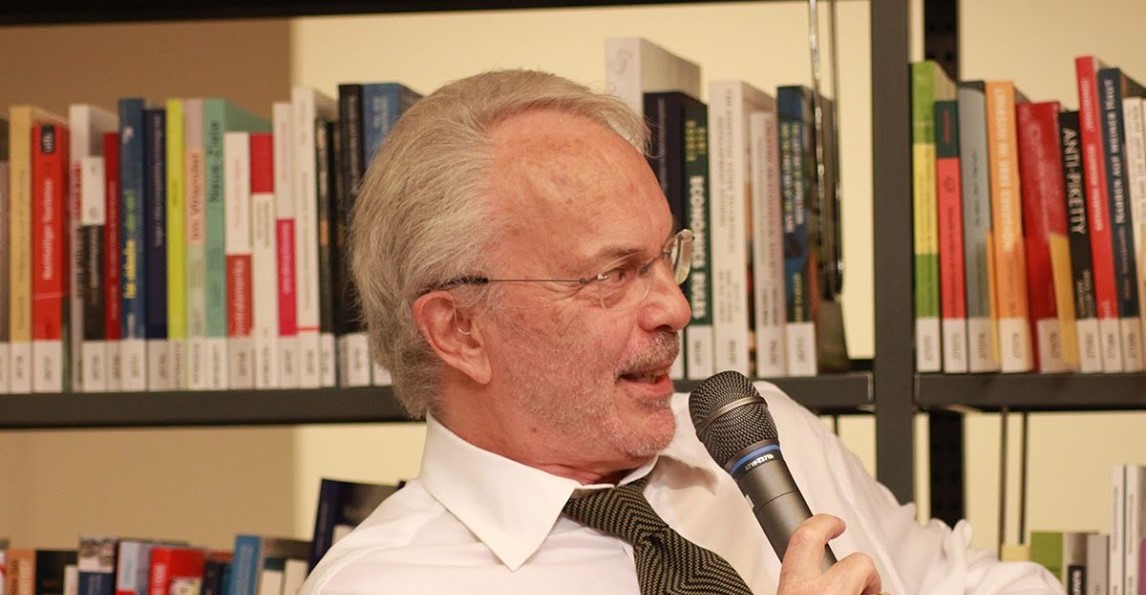EADI President Henning Melber strongly supports the view that science is not neutral and needs to take clear positions. At the recent EADI Directors’ Meeting in October 2018 in Vienna we had the chance to ask him a few questions:
What are, in your view, the most pressing challenges for the global development research community?
Global development? We have reached a cul-de-sac. The signs are obvious that development, as it was promoted since the last several centuries, basically since the era of enlightenment, is nothing that provides a sustainable future. We talk a lot about sustainability in the meantime, even global sustainability, but we are not walking the talk. We are not living up to that. I think, as concerned and committed scholars in EADI, we ought to critically reflect how we can address this: how can we contribute to a change of the discourse – which then is also implemented in political practice to save the world, the planet, for future generations. We have not been living up to the social contract. We have been living on borrowed time. We need to provide a future for those who follow after us.
What can be the role of EADI in facing those exact challenges?
First of all, promoting that discourse. Contributing to a growing awareness. Challenging the dominant paradigms of development. Redefining scholarly commitments by a) taking sides, b) promoting values, and c) living up to what is called solidarity. Living that social contract, contributing to more awareness and not limiting development research to academia. If we are serious about development, it must have a practical meaning and implication.
Which issues do the development research community need to speak on with one voice, despite the diversity within the community?
That is a tricky question because almost all issues are contested issues. And it’s one of the challenges of EADI – which side are we on? I think it is a nice dream that we could speak with one voice. We can speak with one voice as EADI, but that does not mean we would speak for everyone. We are living in times where policies have created very contested arenas. We can speak with one voice we are comfortable with that this represents the values EADI wants to support and cultivate, but I think we will never be able to speak for everyone. That is implied by taking sides: if you take sides you have to opt for those values or other values. And I think that’s the choice EADI and EADI members are confronted with: which choice do we make?
Why do you think does the world need EADI, what gap does EADI fill?
Because we need values. We need to promote a concept and understanding of development which is not limited to any technocratic recipes. They have a place and they have a meaning, such as improving water supplies, building schools and creating better health provisions. All of that should still be considered a legitimate and necessary part of development. But it is not all -development is much more. Development is about human dignity in a much wider sense and about sustainable future perspectives. For human dignity, you need to provide good health services, you need to provide education and you need to provide housing. All those things are integral parts, but they are not enough. We need other values and we must promote them. Development and human dignity would require articulating your views freely without being repressed and without being prosecuted. That is also part of human dignity.
What do you consider the most important reason for a development research institute to join EADI?
To live up to the values which are represented by EADI and through that reflect which ‘side’ they are on. It is as simple as that. And, there is a less value orientated base for institutes to join EADI; to enter networks which expand contacts, to provide dialogue that adds to the knowledge, to strengthen your own positions, to be a part of an organisation that is willing to play an advocacy role for the member institutions, and to promote these principles and approaches in their own institutes and together with partner institutes in a wider context.
In a nutshell, what are the values that EADI stands for?
We released a statement, “No development without freedom.” It is tempting to say that the value we prize the most would be freedom, but freedom needs to be defined. I think it is almost impossible to put it in one word. Two words that sum up our values, that I said before and will now repeat again, are human dignity. As we discussed, it is increasingly about solidarity, it is about peace, it is about social justice. It is more than one word but it’s about the same focus. All those are ingredients for meaningful development.
Henning Melber is President of EADI and Senior Adviser and Director Emeritus of the Dag Hammarskjöld Foundation. He has served as Senior Lecturer in International Relations at Kassel University, Director of the Namibian Economic Policy Research Unit in Windhoek, and Research Director of the Nordic Africa Institute in Uppsala. Henning is an Extraordinary Professor at the University of Pretoria and at the Centre for Africa Studies of the University of the Free State in Bloemfontein. Henning directed the Foundation from 2006 to 2012. He holds a PhD in Political Sciences and Development Studies.

